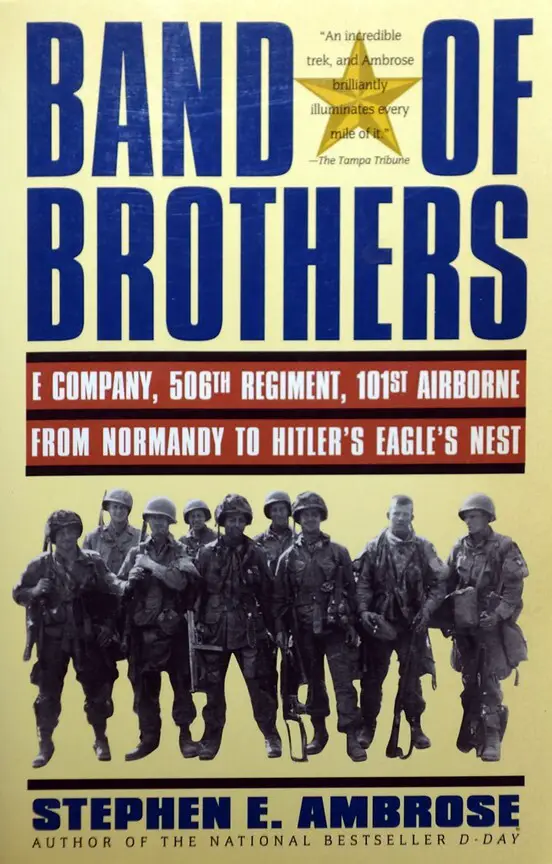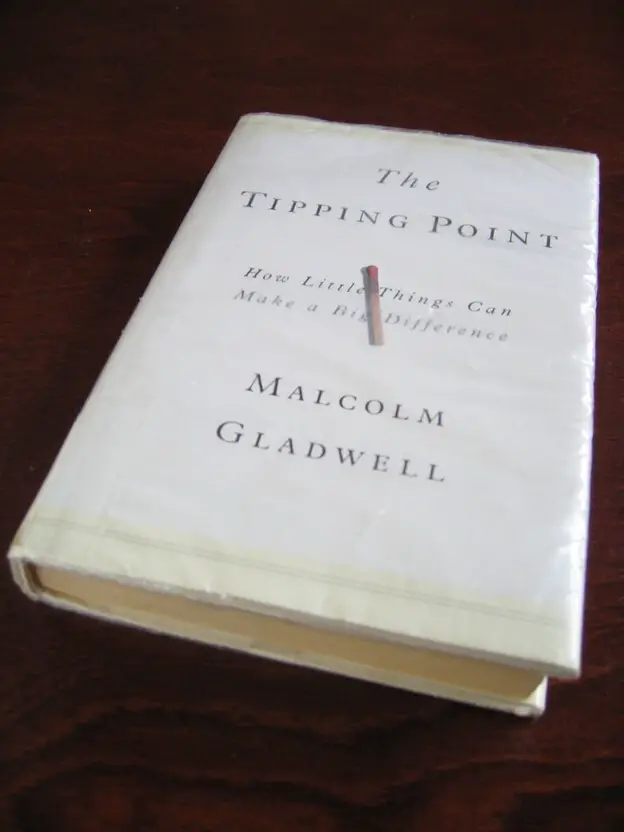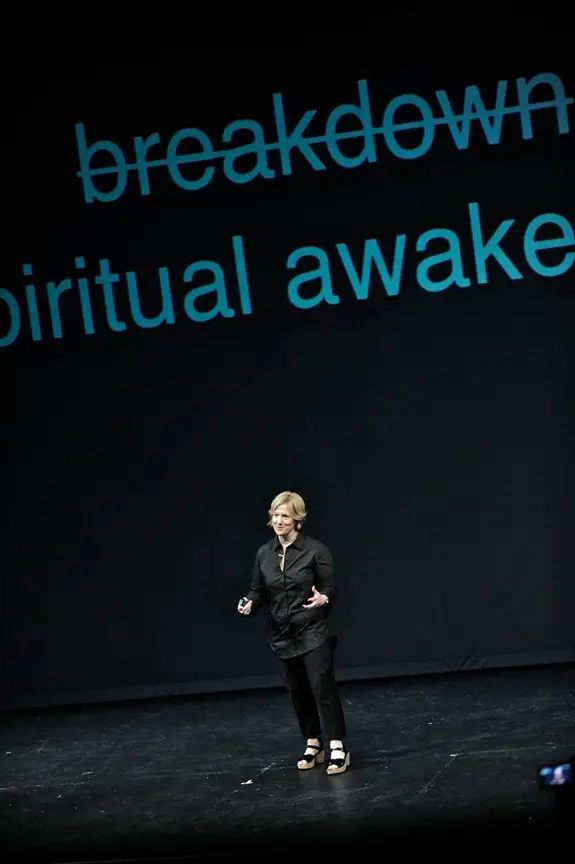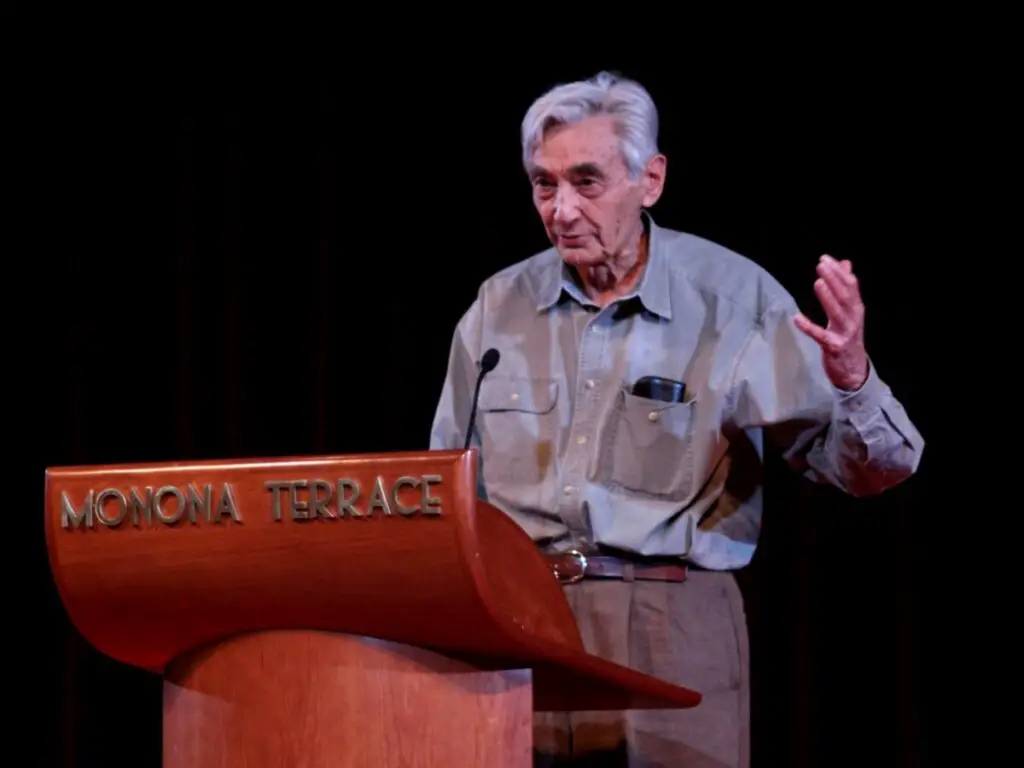|
Getting your Trinity Audio player ready...
|
Non-fiction literature has the power to educate, inform, and inspire. It can take us on a journey through history, introduce us to new ideas, and provide us with a deeper understanding of the world around us. But with so many writers to choose from, it is hard to know who the best non-fiction authors are.
In this article, we look at some of the best non-fiction authors of all time. Our choices are Stephen Ambrose, Malcolm Gladwell, Brené Brown, Michael Lewis, and Howard Zinn. For various reasons, they are some of the most authoritative and influential writers ever to be published.
The difference between fiction and non fiction can often get muddled on paper and in people’s minds.
Stephen Ambrose: The American Historian’s Historian
First on our list is the late historian and biographer, Stephen Ambrose. Ambrose was known for his ability to bring history to life in ways that were both engaging and informative. His books provide a detailed and personal look at some of the most significant events in American history.
The Best World War II Stories

Two of his most famous books, Band of Brothers and D-Day, tell key stories from World War II. The former focuses on a famous parachute infantry company in the US Army’s 101st Airborne Division.
It follows this elite group’s journey from training in boot camp to their various significant military actions.
The latter is the full story of the climactic battle of World War II, examining it from all angles. This includes a thorough history of the forces that led to it and the perspectives of individuals on the ground.
Raleigh Trevelyan of The New York Times, praised him for “wonderfully illuminat[ing the mind of the very young soldier”.
His Point of View skills
Both books demonstrate how skilled he was at placing the reader in the point-of-view of his subjects. He brought the people and events vividly to life. That’s why he is considered to be one of the best non-fiction authors of all time.
It’s also a large part of the reason Band of Brothers was adapted into a high-profile miniseries for HBO. Produced by Tom Hanks and Steven Spielberg, it won multiple awards and is considered a TV masterpiece.
His Presidential Biographies were some of the Best
Ambrose’s other most famous work were his major biographies on two American presidents, Dwight D. Eisenhower and Richard Nixon. He wrote an impressive 5 books on Eisenhower, two of which were combined in Eisenhower: Solider and President.
He wrote a masterful trilogy on Nixon. The books were subtitled The Education of a Politician, The Triumph of a Politician, and Ruin and Recovery.
Malcolm Gladwell: The Art of Science and Sociology
Another notable non-fiction author is Malcolm Gladwell. Gladwell’s books, such as The Tipping Point and Outliers, explore the science behind societal trends and success. He has a unique ability to take complex ideas and make them accessible to a wide audience.
How The Tipping Point influenced

The Tipping Point was his first book and was hugely successful and influential. It cemented his status as one of the best non-fiction authors writing today.
The idea behind it was that huge sociological changes all spread similarly to viral epidemics.
His theory was that each major trend builds until reaching a tipping point. That is a significant point-of-no-return moment where everything seems to suddenly change.
The Three Principles of Epidemics
In his book, The Tipping Point, he divides phenomena into three principles and rules.
- The first principle is contagiousness. In other words, how likely is a trend to spread.
- The second is that little changes have big effects. In examining an epidemic, we must notice how, what seem like, minor points can actually have far reaching consequences.
- The third is that changes can happen extremely quickly.
The Three Rules of Epidemics
There are the three rules.
- The first is the Law of the Few. This is that a social epidemic only needs a few influential people at the top to spread it.
- The second he calls The Stickiness Factor, which measures how enticing the trend is.
- The third is The Power of Context. Context is necessary to determine why one thing will trend and another won’t.
Brené Brown: The Power of Vulnerability
For a non-fiction author who can take you on a journey of self-discovery, look no further than Brené Brown. Her books, including Daring Greatly and Rising Strong, focus on the human experience and the importance of vulnerability.
Her writing is both personal and relatable, making her one of the best non-fiction authors in recent years.
Daring Greatly
Daring Greatly’s subtitleis How the Courage to Be Vulnerable Transforms the Way We Live, Love, Parent and Lead. Courage is an important word here, as it’s one of the central tenets of her philosophy. Rather than viewing vulnerability as a weakness, she considers embracing it as an act of bravery.
The Myths of Vulnerability

Over the course of the book, she debunks various myths.
- The first is the idea that vulnerability is a weakness. According to her, being vulnerable allows people to feel the emotion behind their actions and lead more meaningful lives.
- The second myth is that someone can choose not to be vulnerable. Alternatively, one can pretend not to be vulnerable, but that can do harm to the self.
- The third myth is vulnerability means being an open book to everybody. Brown believes that one shouldn’t be vulnerable with everyone but only with those who’ve earned our trust.
- The fourth myth is that people can go it alone. Whereas, we need people we love and trust to help bolster us.
Using Vulnerability as Subversion
Brown teaches that, in a society that shames people for being vulnerable, embracing it is a subversive act. She teaches her readers to use it not only as a pathway to success but a necessary one.
Michael Lewis: Making Finance Accessible
Another of the best non-fiction authors is Michael Lewis. His books explore the world of finance and economics in a way that is both entertaining and enlightening. He has a knack for making complex financial concepts understandable to the general public. This has helped make him one of the most influential non-fiction authors of all time.
Moneyball: The Art of Winning an Unfair Game
One of Michael Lewis’s most famous books is Moneyball. Its main argument is that baseball insider wisdom as to how the game should be played is flawed and outdated. He tells the story of how the Oakland Athletics team used statistics and analytics to build a winning team.
It’s a great example of how subjects such as math and science can have practical real-world applications. Lewis links this to a form of entertainment that countless people care deeply about, and which is a major industry.
Moneyball made such an impact, that in 2011 it was made into a film starring Brad Pitt, Jonah Hill, and Philip Seymour Hoffman. Not only was it a huge hit but it got six Oscar nominations, including Best Picture. Brad Pitt got a Best Actor nomination and Jonah Hill a Best Supporting Actor nomination.
The Big Short: Inside the Doomsday Machine
Another extremely popular book by Lewis is The Big Short. It’s the story of the 2000s housing crisis in the US. Lewis looks in-depth at the people who created it, how they did it, and how they profited from it.
In 2015, it was also used to make the acclaimed film starring Christian Bale, Brad Pitt, Ryan Gosling, and Steve Carell.
Howard Zinn: The People’s Historian

The last on our list of best non-fiction authors is the great historian and author, Howard Zinn. His book A People’s History of the United States, provides a fresh perspective on American history. It does so by focusing on the experiences and perspectives of marginalised groups.
It is a must-read for anyone interested in understanding the history of the United States.
A People’s History of the United States
Over the years since its publication, A People’s History has been studied in countless high schools and universities. Its greatest legacy is changing the way that American history is taught. It uncovered stories and people that had previously been ignored.
It helped recentre the narrative on ordinary people and minorities such as Native Americans and Black Americans. He viewed American history as the story of a small elite group of rich white people exploiting the masses.
Later Updates
The book was first released in 1980, but Zinn revised and updated it numerous times until 2005. The original edition was the 1980 National Book Award runner-up. Meanwhile, the 2003 edition won the Prix des Amis du Monde Diplomatique in France.
It has sold two million copies over the decades. In 2007, Zinn created a version for children called A Young People’s History of the United States!
Final Thoughts
These are just a few of the many non-fiction authors who have made a significant impact on the world of literature. Each one brings their own unique perspective and style, making them all worth reading.
Whether you’re looking to learn more about history, understand societal trends, or gain self-knowledge, these authors have something to offer. That’s why we consider them amongst the best non-fiction authors of all time.
It may surprise you to know the best selling non fiction book of all time.
Sources
Kirkus Books: Band of Brothers
Telling It Like It Was – Raleigh Trevelyan – May 29, 1994
Simon & Schuster: Stephen E. Ambrose
What You Will Learn: The Tipping Point by Malcolm Gladwell
Book Review: The Tipping Point by Malcolm Gladwell – Daniel Edward – June 25, 2020
Summer readings: Moneyball by Michael Lewis – Nicholas Wroe – July 29, 2011
The Guardian Book Review: The Big Short: Inside the Doomsday Machine by Michael Lewis – James Buchan – March 27, 2010
Zinn Education Project: A People’s History of the United States

